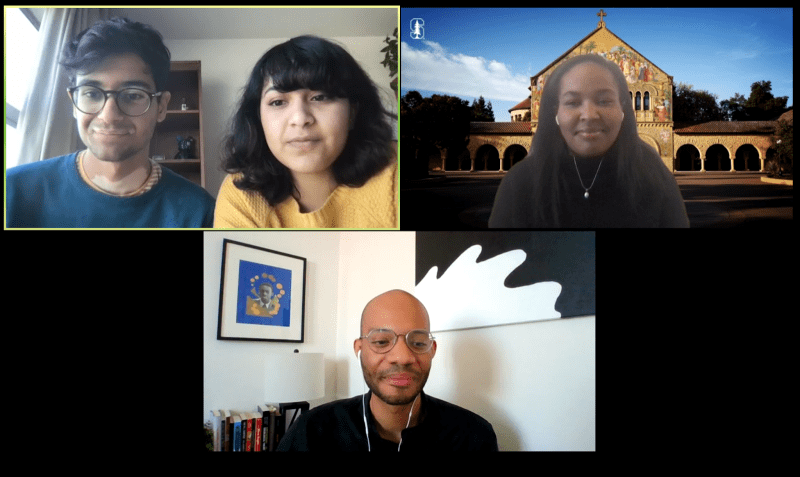Sociology professor Matthew Clair discussed his book “Privilege & Punishment” and the role of race and class in the criminal court for part three of the Stanford Decriminalization Coalition’s speakers series on March 5.
Clair said there are two types of attorney-client relationships. One is full of engagement and open communication. A lawyer and client may bond over cultural commonalities, but most importantly, the relationship is grounded in understanding and mutual respect. The alternative is a relationship riddled with frustration and mistrust.
“Lawyers who find their clients seem not to trust them, start to not trust their clients,” Clair said.
In Clair’s book, he explains that the modern attorney-client relationship tends to favor the privileged and denies justice to the poor and working-class people of color.
In general, working-class or other disadvantaged individuals are less likely to question or advocate for themselves in environments such as doctors’ offices or classrooms than privileged individuals, but this dynamic is inverted in the courtroom, according to Clair. Disadvantaged people withdraw and resist while privileged defendants defer and delegate to their attorneys.
“Disadvantaged people actually have a lot of legal knowledge; many people may be surprised [about] that,” Clair said. “I mean, it’s not as much as a surprise if you really think about the fact that they have so much involvement in the system, they’re overpoliced and they’re regularly brought into court.”
Clair recalls observing the court system in Boston where he sat in on two separate trials: one involved Drew, a working-class black man who was not new to the legal system, and the other focused on Arnold, a middle-class black man and first serious offender.
Drew was arrested for gun possession charges and received a public defender. During the court process, the attorney found Drew resistant. Drew felt that his lawyers weren’t articulating the nuances of the case, and after the lawyer mischaracterized his charge at the arraignment process, leading to an increased bail fine, Drew distrusted his lawyer. The lawyer withdrew from the case and Drew went through at least two more lawyers as his case dragged on indefinitely. Last Clair heard, Drew was convicted.
Arnold, a middle-class Black man, was also arrested for gun possession, but it was his first arrest for a serious charge. He leveraged his social ties and financial resources to retain a private attorney. After going to trial, he was found not guilty, and his case quickly concluded.
While Arnold entered the system backed by resources and with the benefit of the doubt, Drew couldn’t afford a private lawyer and was perceived differently by the court system.
“The lawyer [Drew] worked with was a good lawyer, but sometimes there’s just so much distrust and built up misunderstandings and silencing that lawyers have to do in order to make their clients appear sort of governable in front of the court that makes it, often for a lot of disadvantaged people, almost an inherently coercive and toxic relationship,” Clair said.
In courtrooms, Clair said people who are middle class, educated or white benefit from the court officials who perceive them as outliers.
“It’s like ‘Oh, why are you in the system?’ I get why all these poor Black Latinx Indigenous people are here, but why are you here?’” he said, “And so because of that, there is more interest in trying to figure out what are you know, extenuating circumstances. ‘How can I help you get out of this situation?’”
This demographic tends to defer to the expertise of their attorneys and trust that their attorneys are operating with their best interest in mind, according to Clair. Clair finds that disadvantaged people often do not share that sentiment.
Bu Clair doesn’t want to discourage future lawyers: He hopes that they can fight the system from within. Clair advocates for unlearning biases lawyers might carry into the courtroom and transforming how attorneys engage with clients.
“[Lawyers need to practice] actually listening and having a client-centered approach and taking seriously what the client wants,” he said.
This photo caption has been corrected to reflect the proper spelling of a name. The Daily regrets this error.
